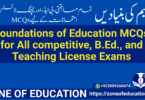MEANING AND NATURE OF PSYCHOLOGY
The word “psychology” originates from two Greek words: psyche (soul) and logos (study). So psychology means a “study about the soul.”. But although the literal meaning of the word “logos” is “talk” it is commonly used to mean “science”.
Hence, psychology means the science of the soul.
But why do we prefer to call psychology a science and not a talk? The reason is that a talk is usually muddled, vague, and fragmentary.
Your talk with a friend on a subject might have been quite clear and consistent, yet it could not possibly be as systematic and exhaustive as the science of that subject can be.
- Psychology is a discipline that studies human behaviour and mental processes. It explains the subconscious neurological basis of behaviour.
It is the study of individuals’ minds, thoughts, and actions. It does not necessarily refer to the brain or nervous system and can be purely framed in terms of phenomenological or information-processing theories of mind.
Understanding brain function is being included in psychological theory and practices. Neuropsychological and cognitive neuroscience psychology attempts to explain consciousness behaviour and social interaction. Psychology has been examining the relationship between consciousness, the brain, and the nervous system. Theories of psychology apply to various activities and problems related to an individual’s daily life and treatment of mental illness.
Psychology is the youngest science. It formally began in Leipzig, Germany, when Wilhelm Wundt founded the psychological laboratory in 1879.
Psychology is concerned with the study of behaviour and mental processes.
It has been defined in many ways, including:
- The Science of the Soul
- The science of the mind
- The science of consciousness
- The science of behaviour
Psychology is composed of two Greek words, Psyche and Logos, which mean the study of the soul. It is becoming increasingly complex with the complexity of society. It does not study human beings alone; it extends to the study of animals, birds, and all creatures possessing life. It has many branches and is used in education, commerce, industry, health, and countless other fields. As psychology is involved in several different fields, psychologists do not agree upon one single definition of psychology.
Definition of Psychology
Psychology is the study of individuals’ thoughts and actions. It is the youngest of the sciences. It is still in making and far from being established in the sense in which other sciences are. Hence, the definition of psychology has been, and probably still is, a matter of fierce controversy among psychologists.
- Psychology is the study of human experience (Ornstein, 1985)
- Psychology is the scientific study of mental and behavioural functioning (Kendall, 1986)
- Psychology is the scientific study of behaviour and mental processes. (Atkinson, Hilgard, 1983; Myers, 1996).
- Psychology is the scientific study of human and animal behaviour (Munavi, 1988).
They largely differ from one another, as indeed all scientists do; in the early stages of their science, disagreements and controversies are almost inevitable, and without them, perhaps scientific progress could not have been as great as it is. This is true, particularly for a new science like psychology, which was just released from psychology and philosophy and is not always able to be distinguished from physiology.
As we read above, no one definition is agreed upon by common consent; there exist different definitions of Psychology.
It has been variously defined as the science of the soul, the science of mind, the science of consciousness, and the science of behaviour. Let us examine these definitions one by one and see if any of them can enable us to understand accurately what psychology is and what it deals with.
Psychology as a Science of Soul
According to the dictionary, psychology means “ the science of the soul.” This is the oldest definition of psychology. The word “soul” is a very unsatisfactory term in psychology. It has changed its meaning. Aristotle used it for the living principle in all animate beings, but in the present day, it is a term used in religion for that part of us that is immortal and which has a special relationship with God.
Thus the use of the term “soul” implies certain theories of religion about immortality and relationship to God, and such theories are just what we want to avoid in the science of psychology, even though we may believe them to be true on other grounds. Psychologists are not opposed to religion, but they certainly want to keep this young science free from religious terminology.
“Soul” is a word of the bad door to men of science, smelling too much of religion. As it has a religious flavour, it is unwelcome to modern psychology. If psychology aspires to be a science, surely it does—it must adopt a scientific and not a speculative procedure. Science observes facts, and the soul is not open to observation or experiment. The definition of psychology as the science of the soul is, therefore, rejected as unscientific.
Psychology as the Science of Mind
To many, the word “mind” is quite as vague as the word “soul.”. If “mind” means something mysterious inside our brain, it would be just the same as it should, and this definition would deserve to be discredited.
Ask the man in the street what he means by “mind,” and he will tell you that it is something in his body, or rather head, which thinks, feels, and wills.
So, if we define psychology as the science of mind as a layman thinks, this definition has no improvement over the previous definition of psychology as the science of soul. But like Hume and Titchener, we take the mind in the sense of mental process; this definition would certainly be better than the previous one.
Psychology would then mean the science of mental processes.
What are the mental processes?
The answer is that they are our processes of knowing, feeling, and willing.
The processes that are commonly said to go on ‘in’ our mind.
To sum up, the definition of psychology as the science of mental processes seems quite reasonable and, therefore, commands assent. This is subject to one objection; however, according to this definition, psychology is concerned with the study of mental processes. Now, even a superficial consideration shows that a person can study only his mental processes. To know the mental processes of other persons and animals, one has to see what they do, and “what they do” is called their “behaviour.”. I can say that the man is grieved only when I see him weeping. We can know the mental processes of others only through the observation of their behaviour.
The definition of psychology as solely the study of mental processes stems from the evolution of the field towards a more comprehensive understanding of behaviour and mental functioning. This shift acknowledges the importance of observable behaviour, environmental influences, and the integration of various psychological perspectives.
Today, psychology is viewed as the scientific study of behaviour and mental processes.
“Thus psychology is concerned with the study of behaviour as well as mental processes.”
The definition of psychology as the science of mental processes is a half-truth.
Psychology as the Science of Consciousness
Psychology has also been defined as the science of consciousness.
What is consciousness?
If you and I stop to reflect, you will be aware that you are sitting at a desk, reading a book, and either interested in it or bored by it. This present awareness is what we mean by consciousness. Does consciousness cover the whole field of mind? The answer is no.
Besides consciousness, there are processes,, and psychology cannot ignore them because they are also processes of the mind. The truth, rather, is that conscious processes form a very small part of our mind. They are, so to speak, the upper surface of the deep sea, the greater part of which lies below. Infect, more lies at the back of the mind than at its front.
This is also an incomplete definition because we can study our conscious processes; we cannot study the mental processes of others. So, we must consider ” behaviour.”
The definition of psychology as the science of consciousness is too narrow because it excludes the study of subconscious and unconscious mental processes and behaviour.
Psychology as a Science of Behavior
Behavior’ is generally understood as anything that a living does. It means “respond,” “reactions,,” or “adjustments of an organism to various kinds of stimuli. A stimulus is the outside cause of the mental process. It has already been said that to understand the minds of other persons and animals, we have to study their behaviour.
Hence, Psychology has been defined as the science of behaviour—a definition that looks accepted by all.
This is the most modern definition and is put forward by the school of psychology known as behaviourism, the leading exponent of which is Dr. Watson. In its extreme form, this school of psychology admits only the study of behaviour as its subject matter and ignores the study of consciousness and mental processes altogether.
Dr. Watson writes: “State of consciousness, like the so-called phenomena of spiritualism, is not objectively verifiable and, for that reason, can never become data for science.”
“The behaviourist finds no evidence for mental existence or mental processes of any kind.” Again, “consciousness is neither a definable nor a usable concept. It is merely a word for the ‘ soul’ of more ancient times.” “If it exists,” he continues, “we can know nothing about it.”
This point of view has been prevalent in America under the table and under the aggressive leadership of Dr. Watson, and has come to be fairly widely held by psychologists in other countries as well. But although our mind is revealed in our behaviour, to study behaviour at the cost of our mind is a mistake. The danger of behaviourism, particularly in its extreme form, has been its tendency to neglect consciousness and mental processes altogether.
The school of behaviourism is an exaggerated reaction against the purely subjective standpoint of those who are known as mentalists. Subjective standpoint means the study of what goes on in one’s mind. This school has resulted in an equally purely objective standpoint. Objective standpoint means the study of what is observable and external to the mind (i.e. behaviour). Infect, there can be no objective or external behaviour without the subjective or inner mental processes of which the former is expression. Hence this definition of psychology as the science of behavior is rejected as one-sided
Relationship between Education and Psychology
Psychology and education are inter connected fields. Psychology, as the study of behavior—or the “science of behavior”—provides foundation to education, which aims to shape and modify behavior within structured settings. But first to know that:
What is Education?
Education is the process of facilitating learning, or the acquisition of knowledge, values, morals, beliefs, habits, skills, and wisdom.
- According to Socrates “Education means the bringing out of the ideas of universal validity which are latent in the mind of every man.”
- According to Plato “Education is the capacity to feel pleasure and pain at the right moment it develops in the body and in the soul of the student all the beauty and all the perfection of which he is capable.”
- According to Aristotle “Education is the creation of a sound mind in a sound body it develops men faculty especially his mind so that he may be able to enjoy the implementation of supreme court goodness and beauty of which perfect happiness essentially consists.”
- According to John Dewey “Education is the development of all those capacities in the individual which will enable him to control his environment and fulfill his responsibilities.
- According to Heinrich Pestalozzi “Education is the natural harmonious and progressive development of man’s innate powers.
- According to Rousseau “Education of man comments at his birth before he can speak, before he can understand he is already instructed. Experience is the forerunner of precept.”
- According to Martin Luther King Jr. “The function of education is to teach one to think intensively and to think critically. Intelligence Plus character that is the goal of true education.”
- According to HB Adams “Education makes” people easy to lead, but difficult to drive, easy to govern but impossible to enslave.
- According to Friedrich William Froebel “Education is unfolded of what is already in faltering in the germ. It is the process through which the child makes the internal-external.”
- Herbert Spencer “Education is complete living.”
Effective educational practice requires an understanding of behavioral science to guide changes and development in students.
This connection between psychology and education is logical and necessary. Successful teaching is based on a teacher’s comprehensive understanding of children’s developmental stages and individual characteristics. Historically, education focused on teachers and subjects, with instruction directed by teachers rather than the learners. Modern education, however, adopts a learner-centered perspective, emphasizing each student’s unique needs, interests, and abilities.
Recognizing the paradigm shift educators have long highlighted the importance of psychology in education. Notably, Pestalozzi emphasized the value of psychological understanding in teaching. Educators such as Froebel and Montessori further supported this view, advocating for educational approaches grounded in psychological principles. Psychological insights now guide nearly every aspect of educational practice. The following sections outline key areas where psychological principles shape education:
- Psychology and education are closely related fields.
- Psychology is defined as the study of behavior or the “science of behavior.”
- Education is the intentional modification of behavior within a controlled setting.
- To alter or change behavior effectively, understanding behavioral science is essential.
- There is a logical connection between psychology and education.
- A teacher must understand children’s characteristics and developmental stages to be successful.
- Traditional education was teacher-centered and subject-focused.
- Modern education now emphasizes a learner-centered approach.
- Education is increasingly tailored to the needs, interests, and capabilities of the individual child.
- Understanding psychology is crucial for organizing and planning educational activities.
- Great teachers emphasize the need for a psychological foundation in education.
- Pestalozzi advocated for understanding psychology in teaching.
- Froebel and Montessori agreed that education should be based on psychological principles.
- Psychological principles guide almost every area of educational practice.
- Specific educational aspects are closely connected to psychological principles.






